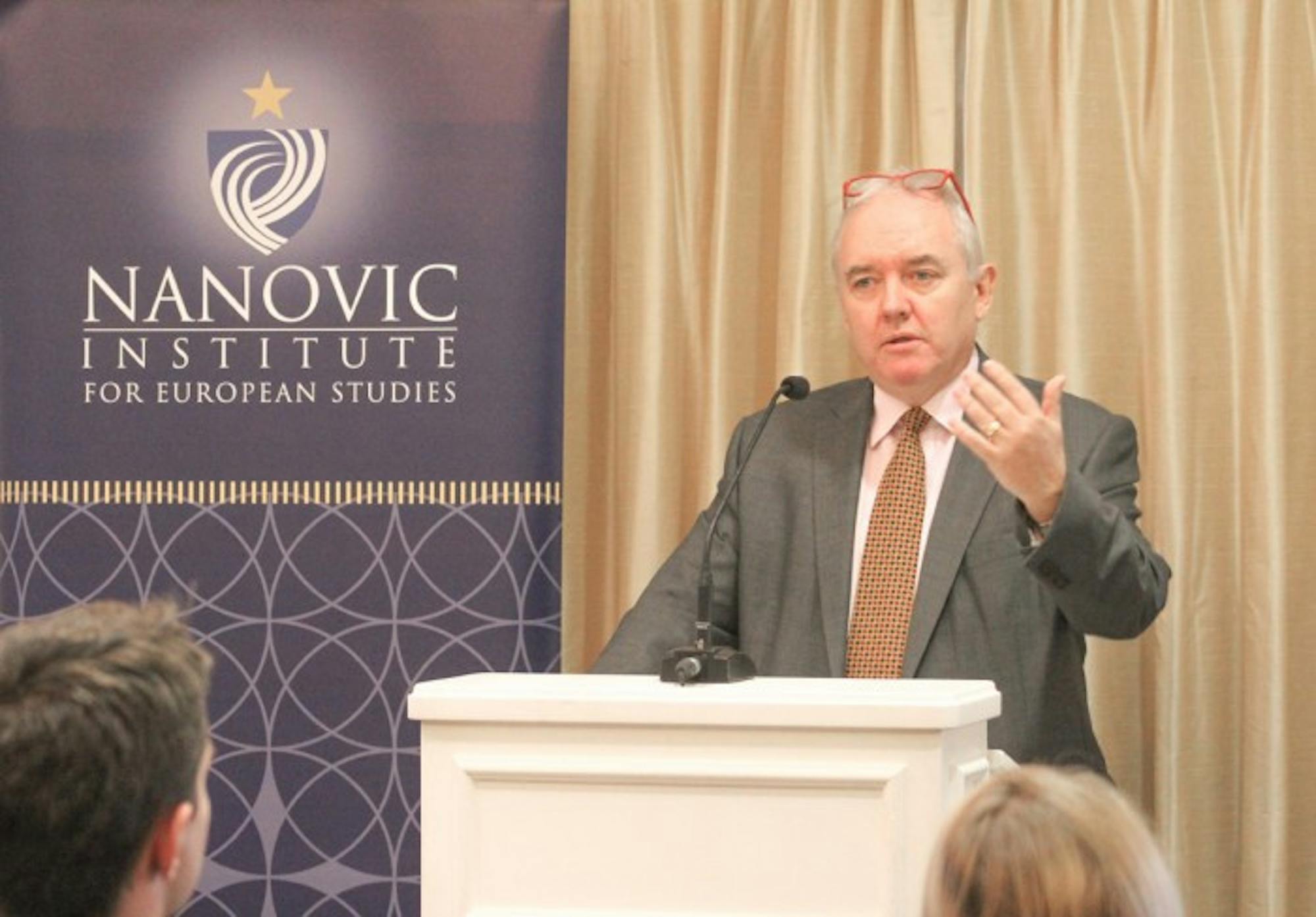Stephen Bridges, former British Ambassador to Cambodia and current British Consul General in Chicago, said the current political landscape is one dominated by populism.
In a lunch discussion hosted by the Nanovic Institute for European Studies on Tuesday at the Morris Inn, Bridges talked about the turbulence epitomized by the Brexit vote — the British referendum to leave the European Union (EU) — and the election of Donald Trump. Discussing both issues in the framework of the relationship between the United States and United Kingdom, Bridges said neither event will have a catastrophic impact on Anglo-American relations.
In his introduction of Bridges, Jim McAdams, director of the Nanovic Institute, referred to three recent shocks in the world: Brexit, the election of Trump and the Cubs winning the World Series.
“Of the three, Brexit is the one I can speak the least knowledgeably about,” Bridges said in reply, during his opening statement. “We’re winging it in Britain.”
There’s a certain degree of uncertainty surrounding the terms of the British departure, he added.
Speaking four days after Armistice Day — a holiday marking the anniversary of the end of World War I, celebrated as Veterans Day in the U.S. — Bridges said modern Europe is not and will not be at war. But he also said Brexit was a part of “a real disruption” taking place in Europe.
Both the British decision to leave the EU and Trump’s victory were part of a “real anger” at the political establishment in “democracy’s heartland,” Bridges said. People in both countries “want something new and different.”
“In the United States that was encapsulated by ‘Make America Great Again,’ and in Britain it was encapsulated by ‘Take back control,’” Bridges said, the latter referencing the slogan of those campaigning to leave the EU.
At the beginning of the talk, Bridges said he was in favor of Britain staying in the EU. But he said there certainly are difficulties that come with being part of an international organization consisting of 28 very different member states, where consensus is necessary, but hard to achieve.
The vote mobilized the British electorate in an unprecedented way, Bridges said. More people — including three million citizens who were eligible to vote but had never done so before — cast their votes for the referendum, a better turnout than any election in British history.
This result, Bridges said, represented the will of the British public and cannot be ignored. However, the full implications of the vote are not yet clear.
“I don’t have the definitive answers,” he said.
Bridges said since one of the greatest concerns of those who voted to leave the EU was immigration, he believes Britain will eventually limit the free movement of EU citizens traveling to and from Britain, which could entail limits on the free movement of goods.
However, he added, he thinks the British economy “won’t fall off a cliff” and that London will continue to be a major international financial center.
“It is important that we get [Brexit] right,” Bridges said. “It is important for the stability of the global community.”
The graves of British soldiers who died in World War I dot the landscape of Belgium and northern France, Bridges said, one of the many examples of the connections it still holds to the European continent.
“While we may be leaving the European Union, we are not leaving Europe,” he added.
In regards to the “special relationship” between the United Kingdom and United States, Bridges said he thinks the alliance will continue to be among the strongest in the world.
“Britain is a ‘soft power’ nation,” he said. “However, what sets Britain apart and makes it a critical ally to the United States is our ‘hard power.’”
Bridges said though the two countries have “a changing relationship,” the alliance’s fundamental principles — free trade “pursuing good in the world” — will remain constant.













